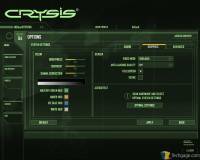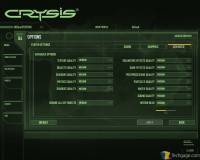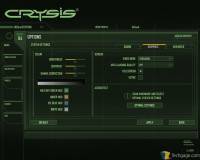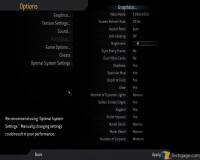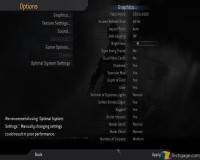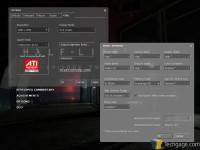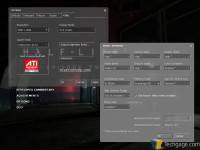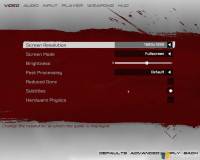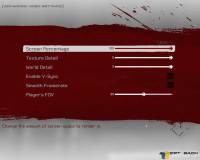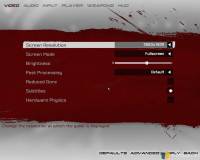- Qualcomm Launches Snapdragon 4 Gen 2 Mobile Platform
- AMD Launches Ryzen PRO 7000 Series Mobile & Desktop Platform
- Intel Launches Sleek Single-Slot Arc Pro A60 Workstation Graphics Card
- NVIDIA Announces Latest Ada Lovelace Additions: GeForce RTX 4060 Ti & RTX 4060
- Maxon Redshift With AMD Radeon GPU Rendering Support Now Available
Intel Core 2 Quad Q9450 2.66GHz
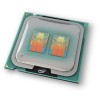
The wait for an affordable 45nm Quad-Core is now over, and the Q9450 promises to become the ultimate choice of the new offerings. It’s not much slower than the QX9650, offers 12MB of cache and as expected, has some fantastic overclocking ability. How does 3.44GHz stable sound?
Page 2 – System Configuration & Methodology
At Techgage, we strive to make sure our results are as accurate as possible. Our testing is rigorous, and sometimes exhaustive, but we feel the effort is worth it. In an attempt to leave no question unanswered, this page contains not only our testbed specifications, but also a fully-detailed look at how we conduct our testing.
If there is a bit of information that we’ve omitted, or you wish to throw off recommendations or suggest changes, please feel free to shoot us an e-mail or post in our forums.
When preparing our testbeds for performance testing, we follow these guidelines:
- The OS installation is left as basic as possible, with important updates applied.
- Required drivers from the motherboard CD-Rom are installed. Non-critical applications are omitted.
- We do not install a virus scanner, firewall or any other security application.
- Scrap files from previous testing are cleaned up; recycle bin / trash is emptied.
- Internet is disabled via software driver.
- Computer has proper airflow and room temperature of 80°F or less.
- Hard-drives affected by testing are defragged with Diskeeper 2008 prior to each fresh run.
No hardware during our processor reviews is changed during testing, except for the CPU, of course. Our current configuration is as follows:
- Processor: Intel Core 2 Quad Q9450 Quad-Core 2.66GHz
- Intel Core 2 Extreme QX9770 Quad-Core 3.2GHz
- Intel Core 2 Extreme QX9650 Quad-Core 3.0GHz
- Intel Core 2 Extreme QX6850 Quad-Core 3.0GHz
- Intel Core 2 Quad Q6600 Quad-Core 2.40GHz
- Intel Core 2 Duo E8400 Dual-Core 3.0GHz
- Intel Core 2 Duo E6750 Dual-Core 2.66GHz
- Intel Core 2 Duo E7200 Dual-Core 2.53GHz
- Intel Core 2 Duo E6600 Dual-Core 2.40GHz
- Motherboard: ASUS P5E3 Premium WiFi-AP @n (Intel X48-based)
- Memory: OCZ 2GB DDR3-1600 Titanium – Intel XMP Edition
- DDR3-1066 6-6-6-15 1.9V for 1066FSB Processors
- DDR3-1333 7-7-7-15 1.9V for 1333FSB Processors
- DDR3-1600 7-7-7-15 1.9V for 1600FSB Processors
- Video: ASUS 9800GTX 512MB (NVIDIA 174.35)
- Sound: Onboard HD Audio
- Storage: Seagate 7200.11 500GB (Gaming), Seagate 7200.10 320GB x 2 (Windows Benchmarks, Linux)
- Power Supply: Corsair HX620W
- Chassis: Antec P182 Mid-Tower
- Etcetera: Windows Vista Ultimate 64-bit, Gentoo Linux 2007.0
- Cooling: Corsair Nautilus 500
- Compared Processors
For our testing, we use both Microsoft Windows Vista Ultimate 64-bit and Gentoo Linux 2007.0 32-bit. We chose to stick to a 64-bit Windows because throughout the past year of usage, we find it to be much more stable than the 32-bit counterpart.
- Windows Vista Ultimate 64-bit
- Windows is up to date via Windows Update (as of April 10, 2008).
- Before testing begins, the screensaver and all power-related options are disabled.
- Welcome Center and UAC is disabled.
- A recent NVIDIA driver for the 9-series is used (174.35).
- Gentoo 2007.0
- An absolute minimal install of the OS is used, and does not include a desktop environment.
- Kernel is modified to remove unwanted features and add wanted ones.
- Kernel is updated to Gentoo-patched 2.6.24-gentoo-r3.
- OS is fully recompiled and updated (emerge -avNuDe world).
Once we set up our OS’, nothing changes unless we intend to re-benchmark our entire selection of processors using the refreshed environments. Given the sheer amount of time that takes, it doesn’t happen too often.
Gaming
In an attempt to deliver accurate results, all games are played through manually, with the average FPS recorded with the help of FRAPS 2.9.4. In our personal tests, we have found that manually benchmarking games is the best way to deliver accurate results, since time demos rely heavily on the CPU.
In order to deliver the best results, each title we choose is explored to find the best possible level for our benchmarking. Once a level is chosen, we play through in order to find the best route, and then in future runs, we stick to that route as close as possible. We are not robots, so we cannot make sure that each run is identical, but they will never be far off from each other. As we see in our results, scaling is good, so we are confident that our methodology is a good one.
Crysis
|
1680×1050
|
2560×1600
|
Call of Duty 4
|
1680×1050
|
2560×1600
|
Half Life 2: Episode Two
|
1680×1050
|
2560×1600
|
Unreal Tournament III
|
1680×1050
|
2560×1600
|
All of our benchmarks will be explained on their respective pages.
Support our efforts! With ad revenue at an all-time low for written websites, we're relying more than ever on reader support to help us continue putting so much effort into this type of content. You can support us by becoming a Patron, or by using our Amazon shopping affiliate links listed through our articles. Thanks for your support!




